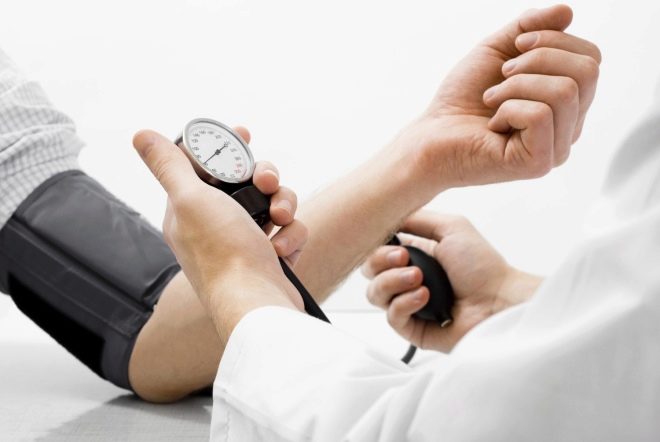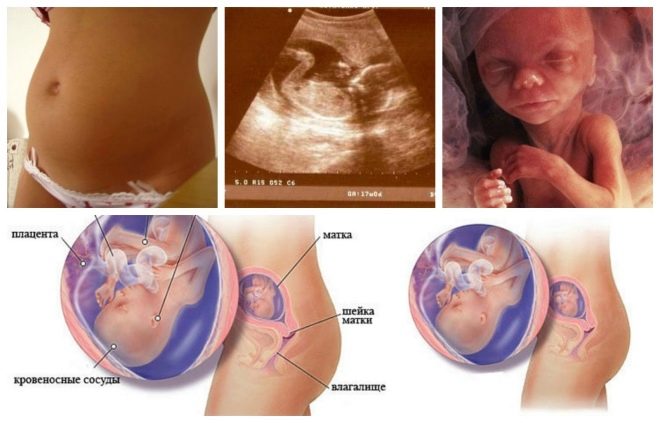Increased pressure during pregnancy in the early stages
Adequate blood supply is necessary for the full development of the fetus. An increase in blood pressure in the first weeks of intrauterine development can quite seriously affect the formation of all the vital organs of the baby in the future.
Normal parameters of blood pressure
Increased blood pressure during pregnancy in the early stages is quite common. The development of this condition can lead a variety of pathologies. Many of them are extremely dangerous.
Persistent high blood pressure in a pregnant woman is called arterial hypertension. It is dangerous development of numerous symptoms that bring future mom pronounced discomfort and violate her usual state.
Doctors highlight certain norms of this indicator and control it during the entire period of pregnancy. Any deviations require correction.
A general practitioner is involved in checking blood pressure (BP) during pregnancy. It is this specialist who will be able to identify certain pathologies that become the causes of the development of arterial hypertension.
Experts have found that The “upper” blood pressure is considered to be indicators that do not exceed 120 mm. Hg Art. This pressure is also called systolic. This name is determined by chance and due to the cycles of the heart. This indicator in this case allows to evaluate the nature of the contraction of the heart muscle or systole.
Borders of normal values of "lower" blood pressure should not exceed 80 mm. Hg Art. This type of blood pressure is also called diastolic and is characterized by the next phase of the cardiac cycle - diastole.
Reasons for raising
The first months of prenatal development of the baby are very important. It is at this time that the vital processes of the laying of all systems of internal organs take place. For the proper development of the baby requires constant and optimal blood flow.
During pregnancy, the fetus is continuously connected with the mother through the uteroplacental blood vessel system. This feature is due to the fact that the developing child’s maternal tummy does not yet have its own arteries and veins. The child’s own bloodstream will appear much later.
Constancy of nutrients and oxygen is provided by maintaining a normal level of blood pressure.
Violations of the uteroplacental blood flow contribute to the emergence of numerous pathologies that manifest themselves later in the baby.
Doctors identify several reasons leading to the registration of high blood pressure during pregnancy. These include:
Kidney and urinary tract diseases
Usually, these pathologies appear even before the onset of conception. The exacerbation of these diseases during pregnancy contributes to a persistent increase in pressure and the occurrence of adverse symptoms in a pregnant woman. According to statistics, most often, chronic pyelonephritis leads to an increase in blood pressure.
Endocrine system pathologies
Diseases of the thyroid gland, pituitary and adrenal glands often cause manifestations of secondary arterial hypertension. In most cases, these pathologies are accompanied by an increase in predominantly systolic pressure. The treatment of such diseases at the endocrinologist.
Medicines
The use of certain types of drugs can increase blood pressure. Such means usually a pregnant woman is forced to take for health reasons. Usually they are assigned to her before pregnancy.
The increase in blood pressure can lead to hormonal, anti-inflammatory drugs, as well as some types of oral contraceptives used before conceiving a baby.
Hormonal imbalance
Hormonal disorders resulting from carrying a baby, doctors call the gestational state. It occurs only during pregnancy. After delivery, the pressure figures are normalized.
The degree of increase in blood pressure can be very different - from minimum to critical.
Hypertonic disease
This pathology often has a family nature. In women with a burdened family history, the risk of developing this type of hypertension increases significantly. The degree of severity of violations in this state is different and depends on many initial factors.
Constant stress
If the expectant mother is constantly nervous and worried, despite the recommendations of the doctors, then the risk of developing hypertension in her increases several times. This is due to producing a large amount of stress hormones, that secrete the adrenal glands.
Constant experiences and excitement only contribute to the development of persistent increase in blood pressure.
How does it manifest itself?
Suspecting a moderate increase in pressure at the beginning of pregnancy is quite difficult. Many women simply "do not feel." Their condition does not change. Usually, arterial hypertension in this case is detected spontaneously - during a visit to the women's clinic.
If a pregnant woman showed a persistent increase in pressure, then she will be required additional diagnostics.
High blood pressure may still be accompanied by the appearance of some adverse symptoms. Most often, expectant mothers have a headache. Many women note that the epicenter of pain is manifested in the neck. In some future moms, the headache has a diffuse character and binds the head like a “hoop”.
A strong increase in systolic pressure can lead to various visual impairments. So, have a future mom before his eyes "flies" begin to flicker or various white specks appear. Some women have severe dizziness.
"Tinnitus - Another frequent high-pressure satellite. Persistent hypertension leads to the fact that the expectant mother begins to feel constant drowsiness and fatigue quickly.
Some women appear sleep disorders. In the daytime, they constantly want to sleep, and by night they may have difficulty falling asleep.
Treatment
During the first half of pregnancy, doctors very carefully choose the method of therapy. Whenever possible, they try to limit themselves to recommendations of a general plan, avoiding the prescription of drugs.
Many of these tools can have adverse effects on the fetus. In the first half of pregnancy, when the baby is laying all the vital organs, it can be very dangerous.
In order to reduce high blood pressure, doctors recommend that the future mom must observe and control her daily routine. She should sleep at least 8-9 hours a day. Regular walks in the fresh air will have a positive effect both on the body of mommy and on her baby.
Nutrition plays a very important role during pregnancy.To normalize the pressure is very important to reduce the consumption of salt. To maintain the optimal level of blood pressure in the blood it is enough to use 3-5 grams per day.
It is important to remember that a large amount of salt is found in processed meat products - such as pates, sausages and sausages. To eat their moms, who suffer from high blood pressure during pregnancy, is not worth it.
Cook all dishes should be without additional salting. Adding salt is better in the already cooked food. However, its daily amount should be carefully monitored.
Restriction of stress is also an equally important point in the treatment of high blood pressure during pregnancy.
Doctors constantly repeat expectant mothers that they should not worry. This item is extremely important! The measured work of the nervous system supports the good functioning of the body, not only of the mother, but also of her baby.
Preparations
With the ineffectiveness of general recommendations, doctors are forced to prescribe drug therapy to expectant mothers. To do this, select drugs that do not have a detrimental effect on the fetus. Frequency and daily dosage selects a therapist.
If a pregnant woman has any serious pathologies of the cardiovascular system, then a cardiologist will already be engaged in her treatment.
In order to normalize high blood pressure, Doctors prescribe antihypertensive pills. They should be taken for a long time. With regular intake, they normalize blood pressure indicators and improve systemic blood flow. As a rule, these drugs are well tolerated and have a minimum of side effects.
For more information on high blood pressure during pregnancy, see the following video.





















